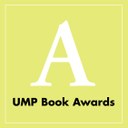The Chronicle: Aid that does not help
[EXCERPT]
Not only economic rationalists sound alarms. From the political and academic left has come suspicion stoked by policy makers' use of terms like "nation building" and "counterinsurgency." Randall Williams, author of The Divided World: Human Rights and Its Violence (University of Minnesota Press, 2010), argues that current ways of framing humanitarian aid and human rights "consistently reinforce the interests of the West, and more specifically the United States."
As hasty military campaigns are mounted, "missionary zeal" obstructs alternatives, says Williams, an independent scholar in ethnic and cultural studies.
In its hawkishness, the "universalist notion of humanitarianism" recalls earlier imperial rationales, he contends.
Neda Atanasoski, a specialist in women's studies at the University of California at Santa Cruz, agrees. In Humanitarian Violence: The U.S. Deployment of Diversity, forthcoming in December from Minnesota, she assesses humanitarian discourse in novels, films, and other cultural artifacts, including political and military rhetoric. For example, she says in an interview, what goes into creating "authorized modes of violence"—ours—against those modes of violence that are cast as arbitrary and authoritarian? How would one define a "good life" that forgoes Euro-American models?
While Williams questions "humanitarian hawkishness," Atanasoski wonders about a form of feminism that embraces military intervention at the service of "tolerance," sexual freedom, and an end to sexual subjugation.
By: Peter Monaghan
Story Date: 2013-07-01T00:00:00



